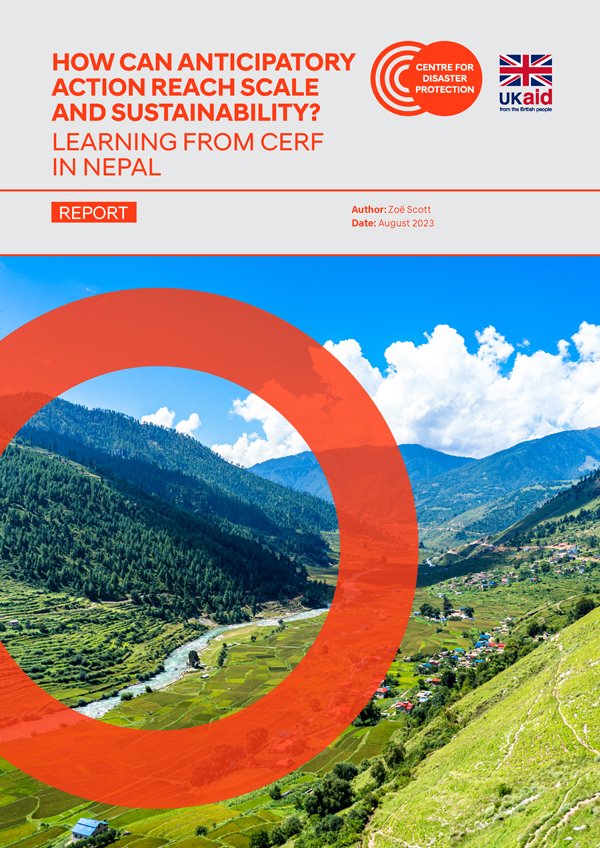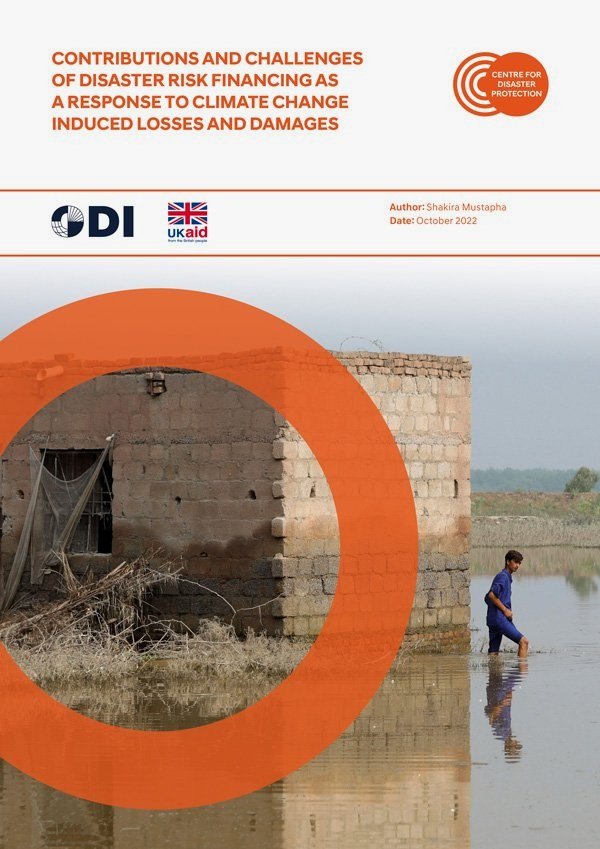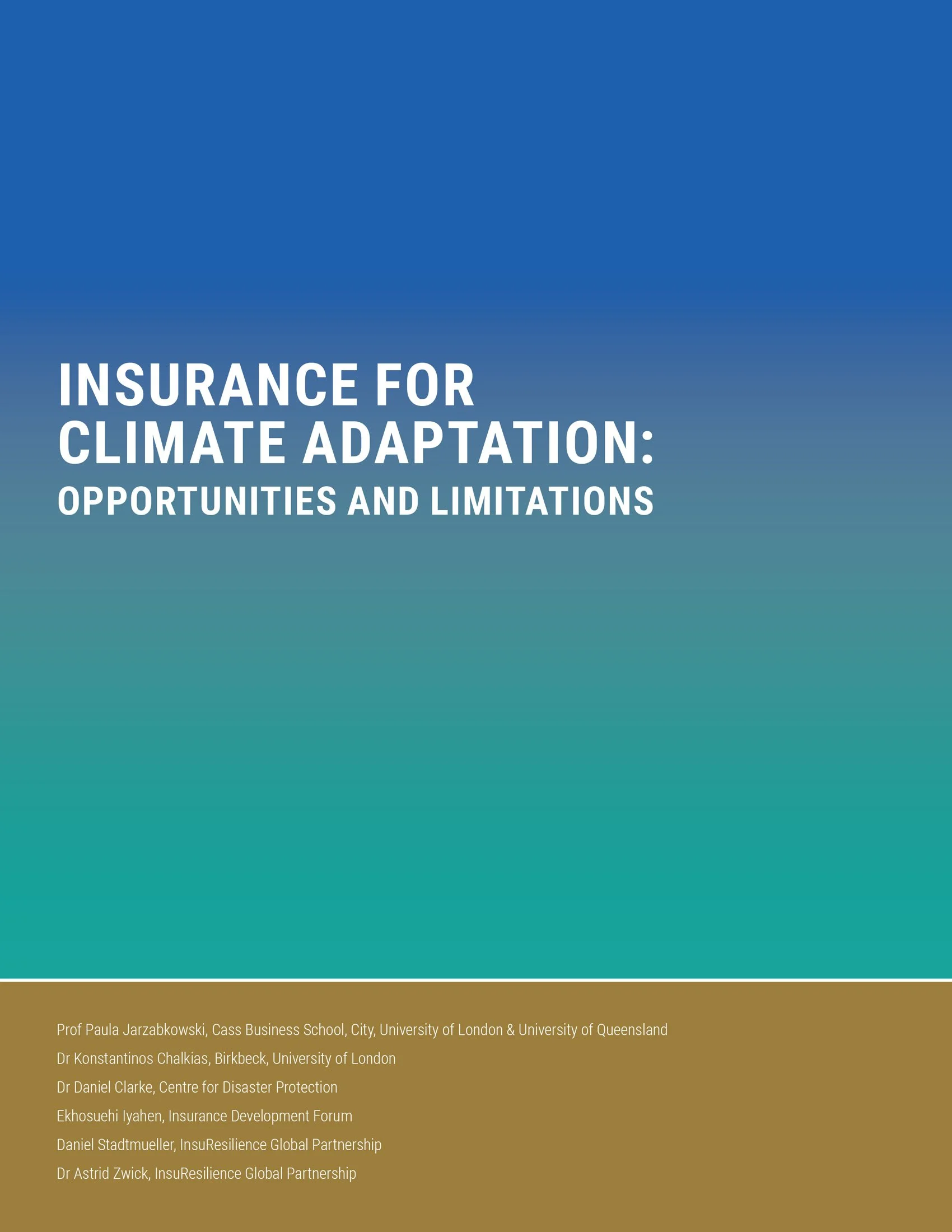
PUBLICATIONS CENTRE

HOW CAN ANTICIPATORY ACTION REACH SCALE AND SUSTAINABILITY? LEARNING FROM CERF IN NEPAL
This report captures and builds on learning from the United Nations Office for the Coordination of Humanitarian Affairs (OCHA) anticipatory action pilot in Nepal. This is one of a series of pilots that aim to generate further evidence of anticipatory action’s benefits in reducing the impact of foreseeable disasters. The Centre for Disaster Protection has supported OCHA’s learning from these pilots by capturing lessons and benefits that emerge from the process, as well as advising on strategies to monitor and evaluate the short-, medium- and long-term results. This report differs from other learning outputs produced by the Centre as it takes a forward-looking perspective, and focuses primarily on the question of how anticipatory action can reach scale and sustainability in Nepal.

OPPORTUNITY COST OF COVID-19 BUDGET REALLOCATIONS: CROSS-COUNTRY SYNTHESIS
This cross-country synthesis study draws from four country studies, focusing on Albania, Ethiopia, Pakistan and South Africa, to calculate what the opportunity cost of budget reallocations was during the covid-19 pandemic. The research on which this synthesis is based took an exploratory approach to the methodology applied in each country to enable readers to learn from the process as much as from the results.

CONTRIBUTIONS AND CHALLENGES OF DISASTER RISK FINANCING AS A RESPONSE TO CLIMATE CHANGE INDUCED LOSSES AND DAMAGES
Human-induced climate change will continue to cause losses and damages, with vulnerable developing countries and communities that have contributed least to the climate crisis bearing the brunt of its consequences. Loss and Damage is the third pillar of the international climate regime in the 2015 Paris Agreement, alongside mitigation and adaptation.
In order to play a well-targeted and effective role, it is important to understand the applications and limits of Disaster Risk Finance as a response to climate-induced losses and damages. This paper explores how DRF instruments are being framed and understood within the panorama of Loss and Damage policy and finance agendas, highlighting areas of contention and sensitivity.

EXPLORING A ROLE FOR TRIGGERS AND RISK-INFORMED FINANCING IN COMPLEX CRISES
Alongside the Airbel Research and Innovation Lab at the International Rescue Committee (IRC) we provide key lessons for how effective crisis response can be financed and triggered, useful across a broad range of organizations that engage in crisis response. This work is a first step towards developing a practical and pragmatic blueprint for how organisations can systematically re-orient their resources and processes towards a state of readiness for future crises. You can also read our ‘Exploring triggers’ blog.

THE FUTURE OF CRISIS FINANCING: A CALL TO ACTION
The Future of Crisis Financing: A Call to Action sets out a new vision for international crisis financing, based on planned approaches and appropriate financing packages and instruments.

INSURANCE FOR INCLUSIVE AND SUSTAINABLE GROWTH:
This synthesis report from Financial Sector Deepening Africa (FSD Africa) and The Centre for Financial Regulation and Inclusion (Cenfri) examines the role that insurance can play in supporting sustainable development and growth in four Sub-Saharan African countries: Ghana, Kenya, Nigeria and Rwanda.

INSURANCE FOR CLIMATE ADAPTATION: OPPORTUNITIES AND LIMITATIONS
This paper examines the role insurance can play as part of a wider strategy to help societies adapt to climate change and recover from disasters. It includes a series of recommendations to maximise the benefits of insurance for climate adaptation. It is part of a series of background papers commissioned by the Global Commission on Adaptation to inform its 2019 flagship report.
